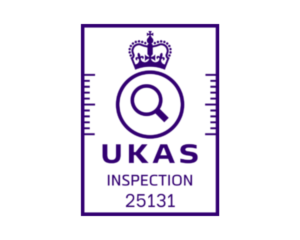FASET – Fall Arrest Safety Equipment Training – is the trade association and training body for the safety netting and temporary safety systems industry. We obsess on the safety of everyone in the construction and FM sectors and take a keen interest in all matters relating to health and safety, including the COVID-19 pandemic. Therefore, we are pleased to share the main points from this Keynote speech, which is relevant to all members of the construction sector.
Anne-Marie Trevelyan began her keynote speech by paying tribute to the energy, determination, and adaptability of those working in the construction sector – and their vital role in supporting our country through the pandemic.
“The sector is an economic engine for the UK. In 2018, it had a turnover of £403 billion, accounting for 9% of the UK economy and employing 3.1 million people. The economic evidence also suggests that every pound invested in construction generates a return of nearly 3:1, through stimulating further economic activity,” said Ms Trevelyan.
“That is very big – but of course, it’s not just the numbers that matter. The construction sector drives enormous benefits for people and places and affects the lives of everyone in the UK. The social infrastructure that the Government has committed to deliver – the homes, schools and hospitals – have an important role to play in rebalancing the UK economically. And these projects will underpin our future low-carbon growth ambitions.
“Last month saw some incredible news and progress towards this. The Government laid legislation for the UK’s sixth carbon budget, proposing a world-leading target which would reduce greenhouse gas emissions by 78% by 2035 compared to 1990 levels.”
Naturally, meeting the long-term ambitions for the creation of a low-carbon built environment will continue to require action from all active companies within the construction industry.
As co-chair of the Construction Leadership Council, Ms Trevelyan highlighted that in March 2021 the CLC published a Skills Plan for the sector. This Skills Plan outlines recommendations for industry and government that will seek to:
- improve the attractiveness of construction as a career;
- boost training and apprenticeships, and create clearer pathways into employment in the industry;
- enhance opportunities for lifelong learning and career progression for those working in the sector; and
- identify the skills needed to modernise the sector, from digital skills, to those linked to offsite manufacturing, project management communication and teamworking.
She went on to say that: “We also face another challenge in the UK – how we learn the lessons of the tragedy of the Grenfell Tower fire, and ensure that an event such as this can never happen again. The Government is committed to bringing about a fundamental change in both the regulatory framework and industry culture, creating a more accountable system.” This is based on the principle that buildings are safe and that their occupants feel safe, and it includes:
- Making sure there is greater accountability on those responsible for managing building safety risks in all buildings, and particularly for those responsible for high rise residential buildings throughout their life cycle;
- Ensuring that high-rise buildings are constructed safely and maintained safely through developing a new Building Safety Regulator;
- And providing guarantees that products meet expected standards of safety and performance through a package of reforms that include establishing a National Regulator of Construction Products.
Image: Wikimedia Commons. Credit: Chris McAndrew / UK Parliament. Creative Commons License.









